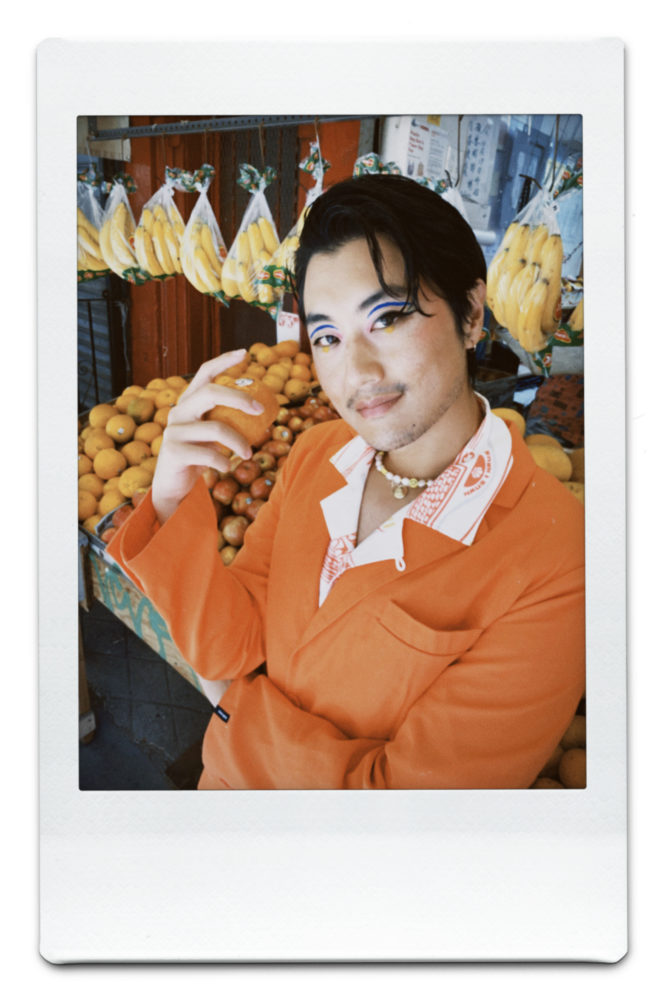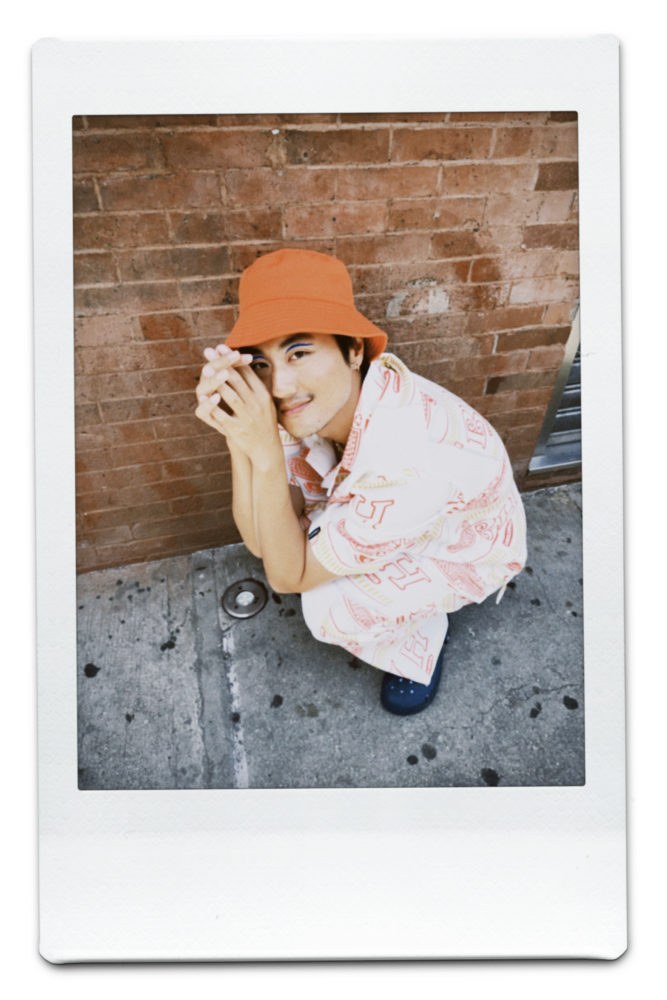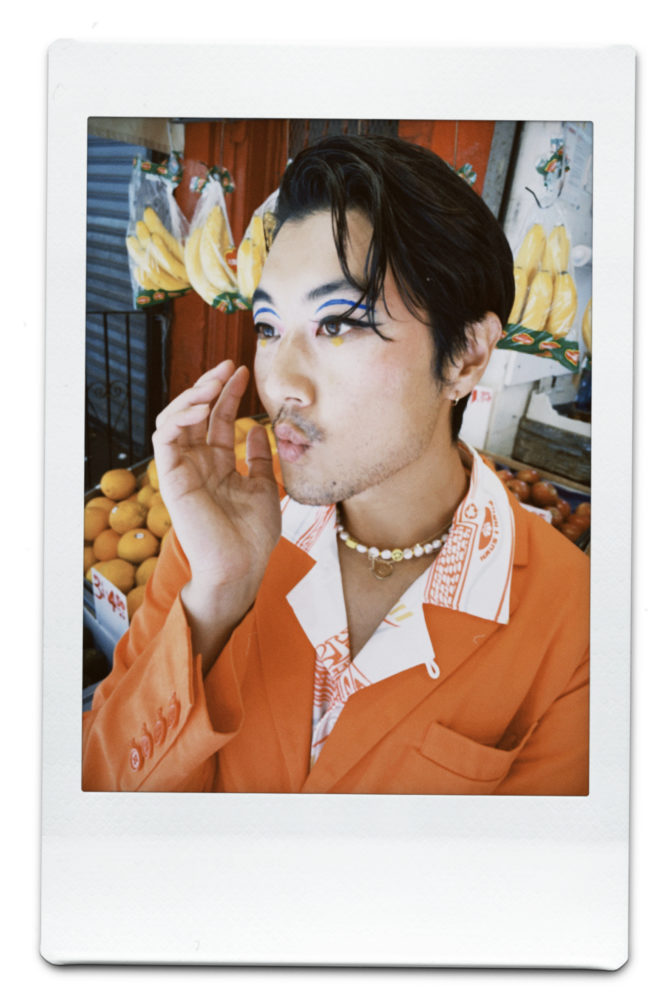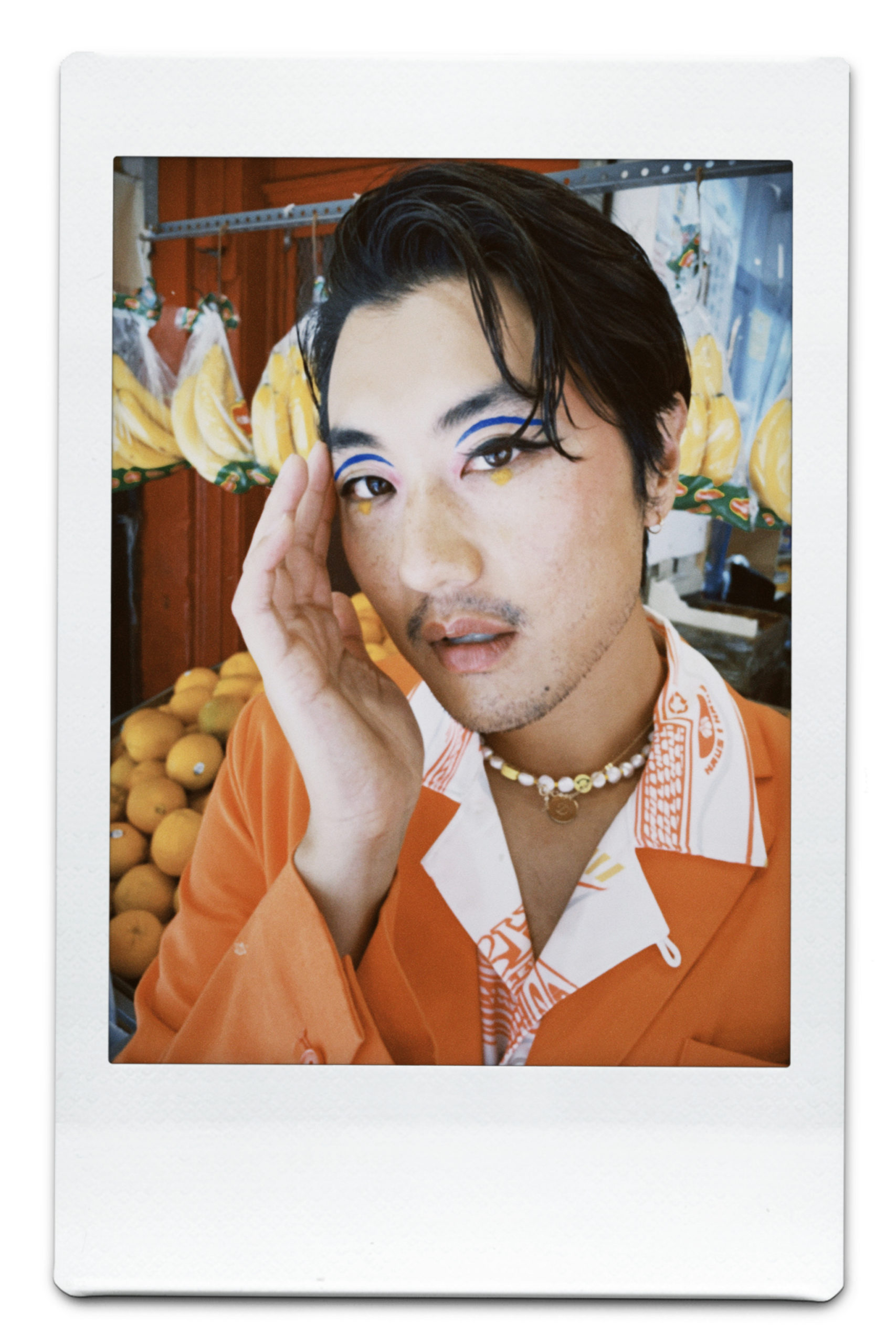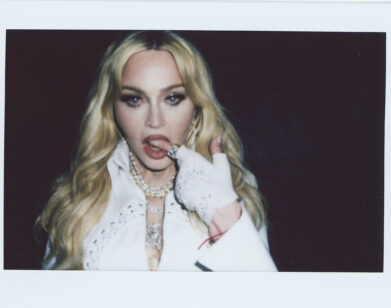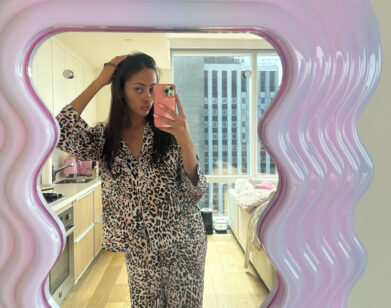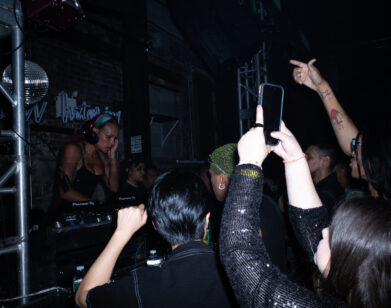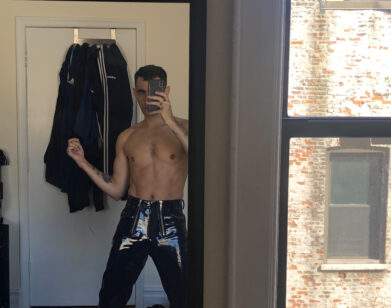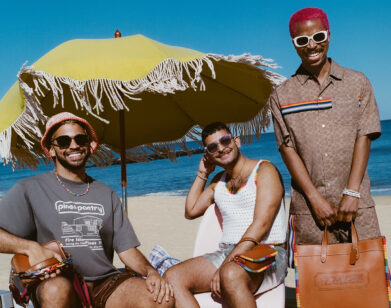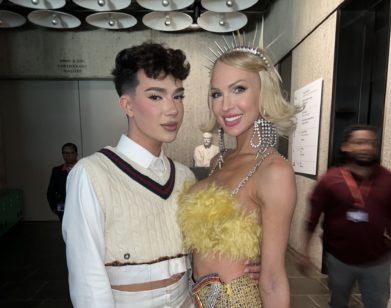q&a
David Yi on Masculinity, Makeup, and Why Pretty Boys Do It Better
- David Yi.
- Photos by Eliane Awada.
- All Clothing by Bobblehaus.
Harry Styles may have sent the internet spiraling in recent years with his perfect manicure and delicate pearls, but David Yi is here to remind us that Babylonian army officials carried personal manicure kits with them centuries before he ever graced the stage. In Pretty Boys, Yi’s new book, the skincare expert-turned-beauty journalist traces the legacy of cultural figures who have defied the boundaries of gender expression through makeup across cultures and over centuries. In honor of the book’s release, the Korean-American writer hit pause on his Pride festivities to answer a few questions for us, and to show off a couple of beauty looks (created in collaboration with makeup artist Cristina Montemayor) in celebration of pretty boys everywhere. — MEGAN HULLANDER
———
ERNESTO MACIAS: How did this book come about?
DAIVD YI: Pretty Boys is the history of men, masc-identifying people, and makeup. The book is truly the first about men who have beautified and amplified their power through their aesthetics. I wanted to show people that beauty and cosmetics have amplified all kinds of folx throughout history.
MACIAS: Why is it important for the history of masc-identifying folx to be told, in regards to makeup and beauty?
YI: It’s important to show that beauty has always been political. I hope that people understand that gender roles were created to divide people, and that in reality makeup has been used by all kinds of people for thousands of years.
MACIAS: What do you hope readers take away from your book?
YI: I hope they will take inspiration and understand that if beauty is in the eye of the beholder–*they* are that beholder. They truly have the power to transform themselves.
MACIAS: The concept of mens’ beauty and cosmetics has come a long way in the past few years, to the point of being almost mainstream—what do you attribute this to? Who has led this revolution?
YI: I think it’s Gen Z that, by and large, has changed this conversation. They’re leading the revolution through TikTok, through stars like Harry Styles, or younger stars who do not adhere to the binary.
MACIAS: Who deserves the real credit for this revolution?
YI: I think the real credit goes to all the folx–especially LGBTQIA++–who were the ones out there fighting for change. From Black trans activists to queer indigenous folx, the Asian American voices that have been so fierce throughout history, and so many more.
MACIAS: What do you hope the book’s lasting impact will be?
YI: I hope the lasting impact will be that history is viewed in a more robust manner. I hope that this book gives us a more well-rounded understanding of our heroes.
MACIAS: What were the inspirations behind the looks you created for us?
YI: I collaborated with my colleague Cristina Montemayor, a great editor and makeup artist. We wanted to have fun for Pride, to show off some color, and really showcase my mono-lidded eyes.
MACIAS: Your motto is “beauty beyond the binary”—can you tell me more about this and why it’s so important for you to push this out to the world?
YI: It’s essential that we understand our own societal conditioning and how and why we’ve fallen victim to this system of division. Beauty beyond the binary is about understanding that we all have a place in this world.
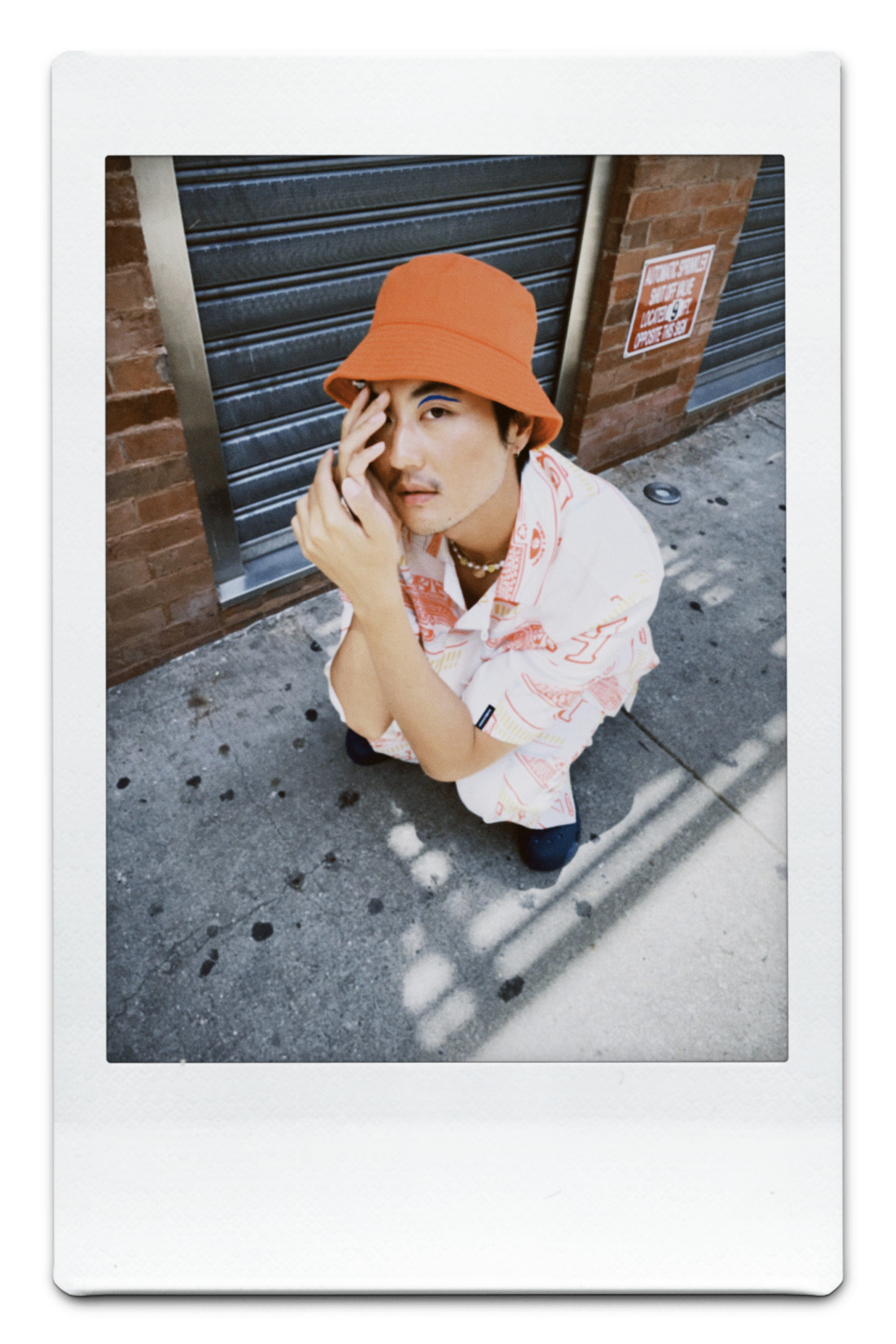
We’re celebrating Asians all day every day. I wore Bobblehaus, an Asian American-owned brand by two women. We used a blue eyeliner from Freck to accentuate the monolids of my eyes. We wanted to have fun with blue, a color that I don’t use so often.
———

